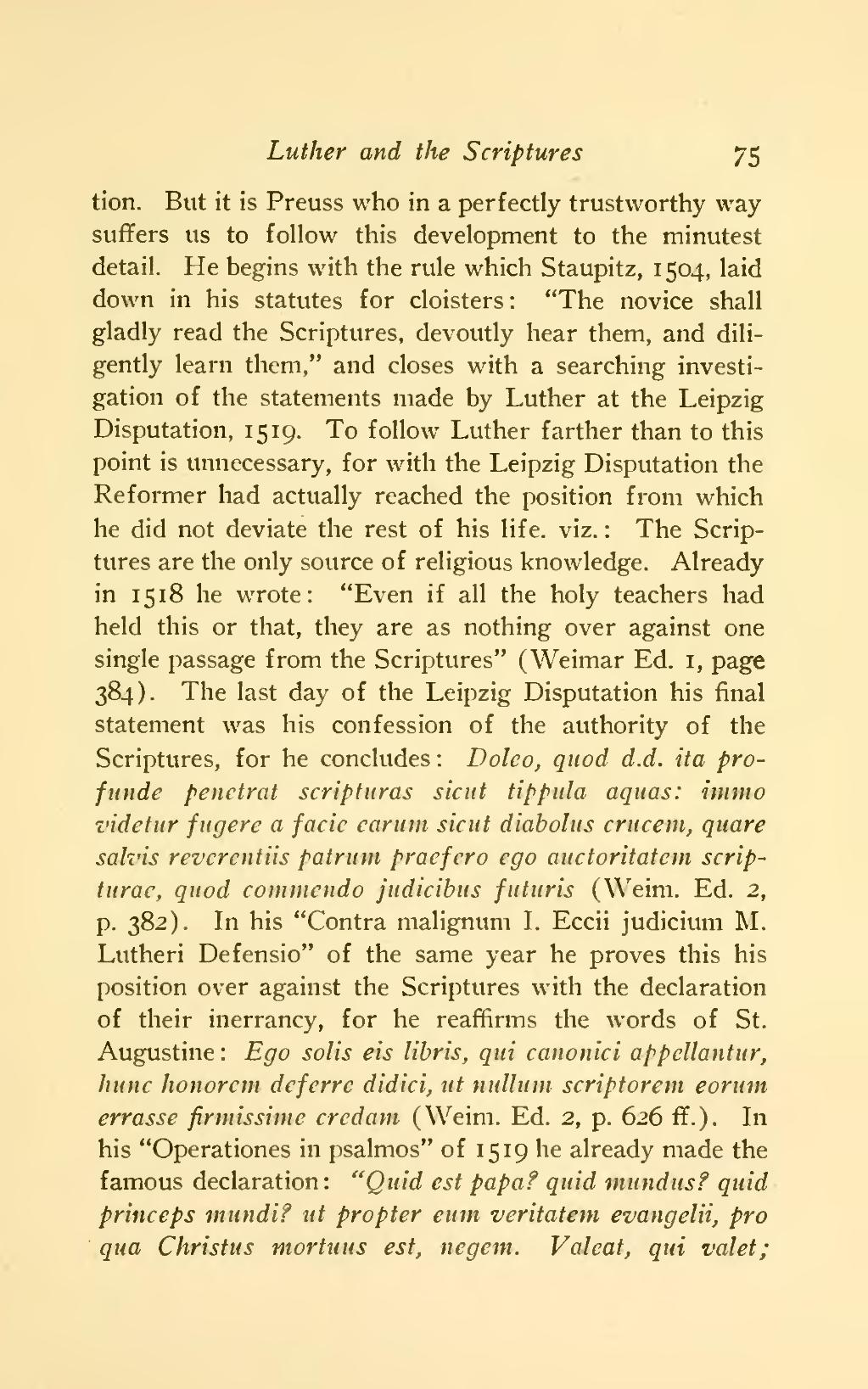tion. But it is Preuss who in a perfectly trustworthy way suffers us to follow this development to the minutest detail. He begins with the rule which Staupitz, 1504, laid down in his statutes for cloisters: "The novice shall gladly read the Scriptures, devoutly hear them, and diligently learn them," and closes with a searching investigation of the statements made by Luther at the Leipzig Disputation, 1519. To follow Luther farther than to this point is unnecessary, for with the Leipzig Disputation the Reformer had actually reached the position from which he did not deviate the rest of his life. viz.: The Scriptures are the only source of religious knowledge. Already in 1518 he wrote: "Even if all the holy teachers had held this or that, they are as nothing over against one single passage from the Scriptures" (Weimar Ed. 1, page 384). The last day of the Leipzig Disputation his final statement was his confession of the authority of the Scriptures, for he concludes: Doleo, quod d.d. ita profunde penetrat scripturas sicut tippula aquas: immo videtur fugere a facie carum sicut diabolus crucem, quare salvis reverentiis patrum praefero ego auctoritatem scripturae, quod commendo judicibus futuris (Weim. Ed. 2, p. 382). In his "Contra malignum L Eccii judicium M. Lutheri Defensio" of the same year he proves this his position over against the Scriptures with the declaration of their inerrancy, for he reaffirms the words of St. Augustine: Ego solis eis libris, qui canonici appellantur, hunc honorem deferre didici, ut nullum scriptorem eorum errasse firmissime credam (Weim. Ed. 2, p. 626 ff.). In his "Operationes in psalmos" of 1519 he already made the famous declaration: "Quid est papa? quid mundus? quid princeps mundi? ut propter eum veritatem evangelii, pro qua Christus mortuus est, negem. Valeat, qui valet;
